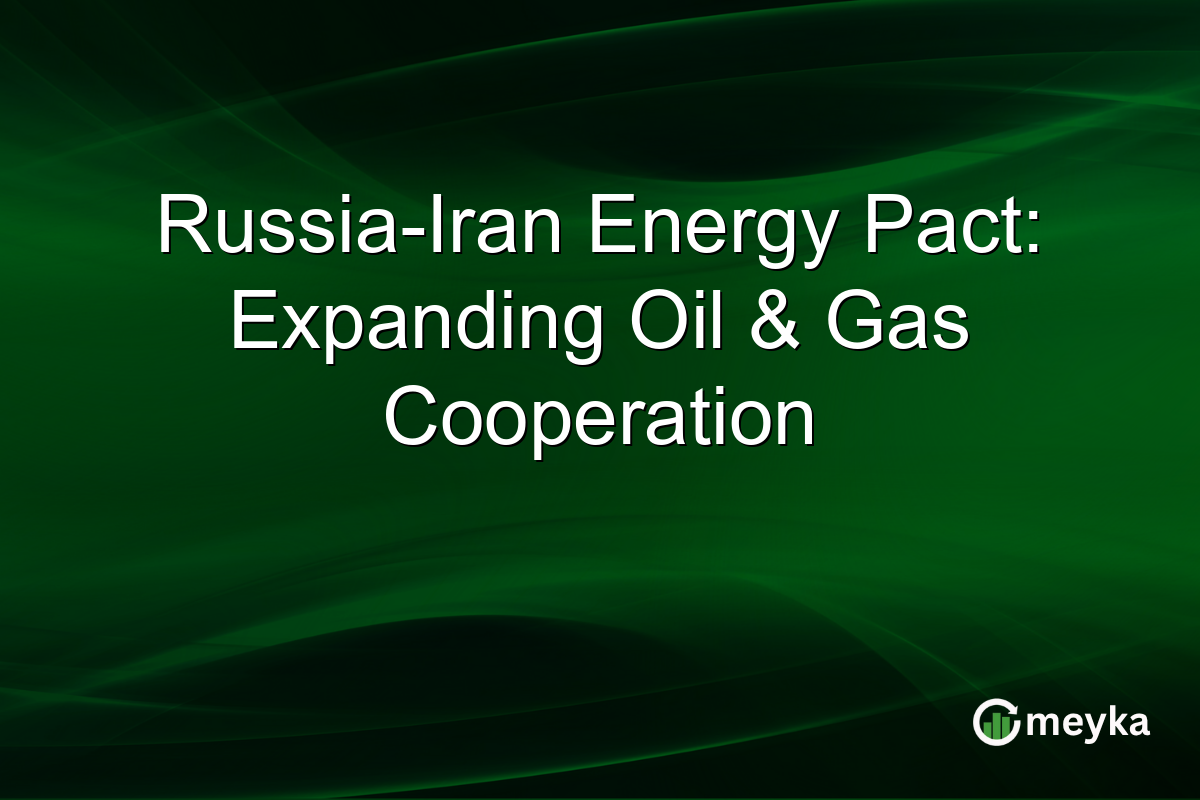Russia-Iran Energy Pact: Expanding Oil & Gas Cooperation
Today, the news is buzzing with the latest developments in the strategic alliance between Russia and Iran. Both nations are expanding their cooperation in oil and gas sectors to counter Western sanctions. This Russia-Iran energy agreement marks a significant shift in global energy dynamics, as it challenges existing sanctions and alters geopolitical landscapes. As the world watches, the implications for global markets and trade flows could be profound.
The Russia-Iran Energy Agreement
The recent agreement between Moscow and Tehran seeks to boost collaboration in the oil and gas sectors, a strategic move designed to bypass Western sanctions. Both nations, facing economic pressures, see this partnership as a way to diversify and secure their energy exports. The agreement includes joint ventures in exploration, production, and infrastructure development, setting the stage for a robust energy alliance. These developments surface amid growing geopolitical tensions. Analysts believe the Iran sanctions impact may create lucrative opportunities for both Russia and Iran. By aligning their energy strategies, these countries aim to ensure their mutual growth and stability in the face of global challenges.
Impact on Oil and Gas Markets
The Russia-Iran oil trade expansion comes at a crucial time. Global energy markets are already volatile due to ongoing conflicts and economic disruptions. With this new cooperation, there’s potential for altered supply chains and increased market stability for both nations, albeit outside traditional Western trade routes. The Moscow-Tehran cooperation is keen on exploring alternative markets in Asia and Africa. Such ventures could create new demand and provide Iran and Russia with vital economic lifelines. This expansion could lead to increased production and export opportunities for both nations. To stay updated on the latest debates and reactions, check recent discussions on social platforms like Twitter.
Legal and Political Implications
This Russia-Iran energy agreement has legal and political ramifications, especially concerning the enforcement of sanctions. By engaging in bilateral trade, Russia and Iran challenge the efficacy of current sanctions, potentially prompting revisions in international law and regulatory frameworks. From a legal perspective, both countries may need to navigate complexities around existing contracts and agreements with third-party nations. Political analysts suggest this energy agreement may impact diplomatic relations, triggering negotiations and policy shifts globally. For a detailed analysis, visit prominent news outlets such as Reuters and CNBC.
Final Thoughts
The deepening of Russia-Iran energy ties is a strategic response to Western sanctions, setting the stage for potential shifts in global energy trade. By collaborating, both nations aim to circumvent existing restrictions, secure economic growth, and bolster geopolitical influence. As the world adjusts to these changes, close observation of market reactions and political adjustments will be crucial. This agreement not only impacts current energy flows but also hints at broader economic and diplomatic alterations to come.
FAQs
The main aim is to enhance cooperation in oil and gas sectors, allowing both nations to counter Western sanctions and secure economic stability through joint exploration and production efforts.
It could change energy supply chains, increase market stability for these nations, and open new markets in Asia and Africa, potentially altering traditional Western trade routes.
The agreement challenges existing sanctions and may lead to changes in international laws and regulations, affecting diplomatic relations and requiring navigation of complex legal frameworks.
Disclaimer:
This is for information only, not financial advice. Always do your research.






